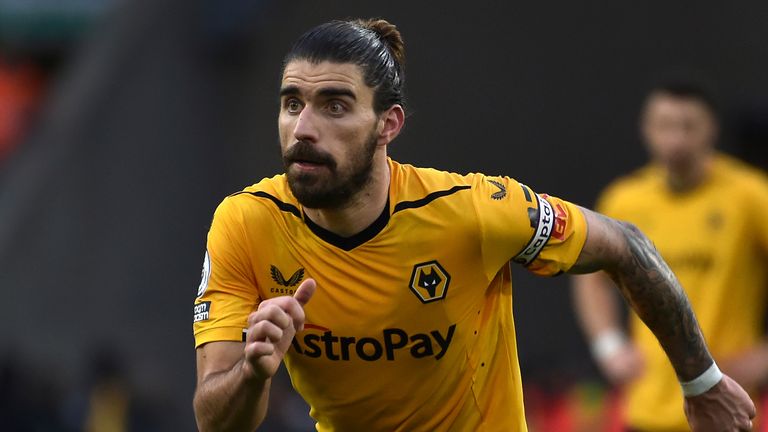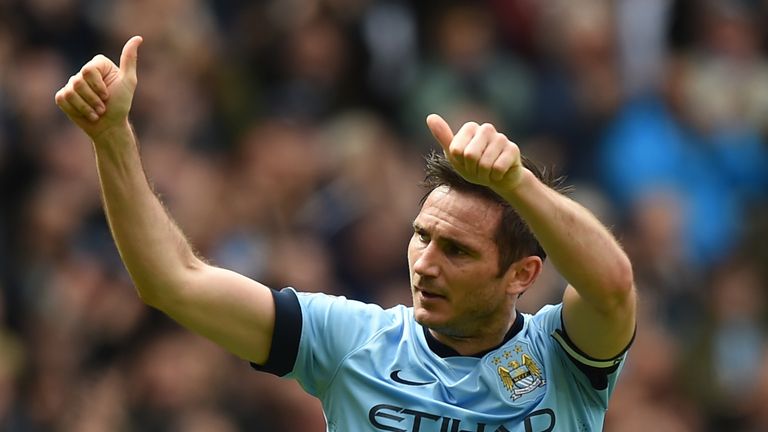Premier League clubs have voted against a temporary ban on loan deals between associated clubs for the January transfer window.
Thirteen Premier League teams voted to stop England’s top-flight clubs from making related-party loan deals, with seven voting to keep the existing rules in place.
The minimum number of clubs needed to pass the temporary ban was 14. Clubs voted at a shareholders’ meeting on Tuesday over the temporary ban, with a view to sorting out a permanent policy.
The ruling means Newcastle, who are 80 per cent owned by The Public Investment Fund of Saudi Arabia (PIF) are in a position to loan players from the four Saudi Pro League clubs also owned by PIF in the upcoming window.
Those clubs are Al Nassr, Al Ahli, Al Ittihad and Al Hilal.
Al Hilal’s midfielder Ruben Neves, formerly of Wolves, is one player Newcastle boss Eddie Howe has admitted his club have an interest in.
Newcastle have a long injury list heading into the January window which includes Sven Botman, Callum Wilson, Elliot Anderson, Harvey Barnes, Jacob Murphy, Dan Burn and Matt Targett.
Meanwhile, Newcastle midfielder Sandro Tonali is banned from playing for 10 months due to breaches of rules on betting on matches in Italy.
Eleven of the 20 Premier League clubs have connections to other clubs through their owners, but Newcastle would have the biggest and strongest pool of players to trade should they decide to do so via these means in January.
The news also means Manchester United will not be banned from signing players on loan from French club OGC Nice, who are owned by Sir Jim Ratcliffe’s INEOS group, once a deal for Ratcliffe to buy a stake in United is completed.
Ratcliffe is on the verge of completing a £1.5bn investment for 25 per cent of Manchester United.
Furthermore, Manchester City can loan players from the City Football Group – which consists of 12 worldwide teams, including current LaLiga leaders Girona.
Premier League players who have moved between associated clubs in the past include Frank Lampard, who joined Manchester City on loan from feeder club New York City in the 2014-15 season.
In January 2022, Brentford reacted to a long-term injury to goalkeeper David Raya by taking Jonas Lossl on a short-term loan from sister club FC Midtjylland.
What does this mean?
Sky Sports News’ chief reporter Kaveh Solhekol:
“What a ban would have meant was that, in January for instance, Newcastle who are 80 per cent owned by the Saudi sovereign wealth fund, would not be able to loan players from other clubs who are majority run by the PIF.
“There has been a lot of talk that Newcastle are looking for a midfielder because Sandro Tonali is suspended, so would they go for Ruben Neves – who is a £50m player, but they could get for nothing in January?
“The vote on a temporary ban needed two-thirds majority to pass the ban but it fell short by one vote – 13 to 7. Newcastle who are part of multi-club groups will be able to loan from other clubs in their group, if they want to.
“Newcastle may want another midfielder, there has been a lot of speculation that Ruben Neves is another target for them.
“We shouldn’t target Newcastle, because almost half the clubs in the Premier League are now part of bigger groups. Some are part of groups of 10 clubs, some have other clubs in European leagues for instance where they send players for experience.
“Also, the great players in Saudi Arabia play for big clubs as well in the biggest league in Asia. Let’s not assume they will want to run away from Saudi Arabia and crawl into the Premier League.
“A lot of people in the Premier League are concerned about it, but in the future there could be a permanent policy issue. But there weren’t enough assenters in the room to vote for a temporary ban on Tuesday.”
What else was discussed in the PL shareholders meeting?
No formal vote was held on the ‘New Deal’ – a potential £915m settlement between the Premier League and clubs in the English Football League.
Instead, there were extensive discussions and there is positive momentum on the agreement moving forward.
The Premier League will continue to consult with the EFL over the coming weeks, with more talks planned on funding mechanisms, cost controls and transfer levies.
Meanwhile, PGMOL chief Howard Webb addressed the meeting and spoke about VAR and refereeing standards in the Premier League.
A top-flight advisory group will be set up to examine what can be done to improve in-stadium communication surrounding VAR for fans inside Premier League grounds.
As expected, the case surrounding Everton’s 10-point Premier League deduction and a potential appeal process was not on the agenda.



